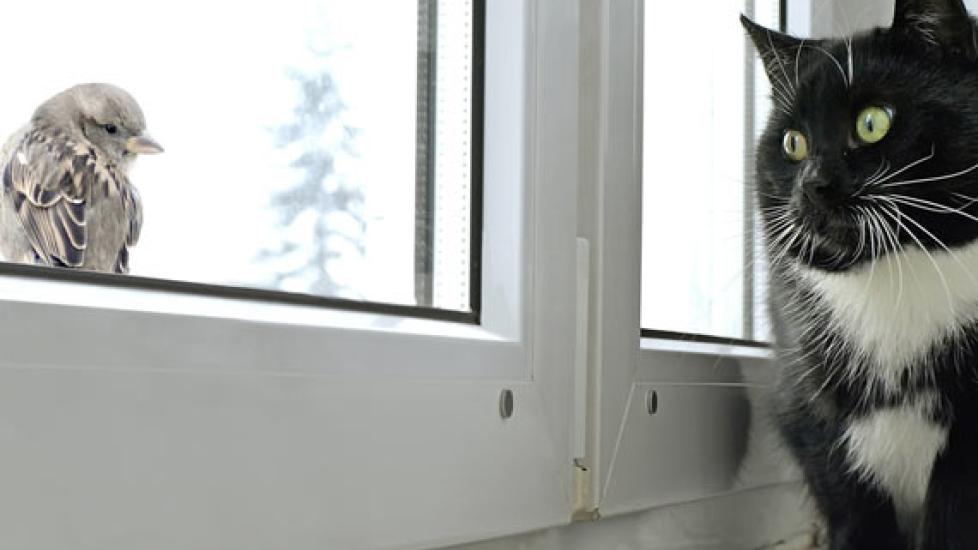Is Songbird Fever a Threat to Your Cat?
I visited a farm this week and had the opportunity to watch their “barn cat” hunt. The object of her attention was a bird. Despite this little lioness’s obvious prowess, the bird escaped unscathed. I was happy for the bird, but also relieved that the cat had potentially dodged a bullet. I’m talking about a disease that goes by the intriguing name “songbird fever.”
Like many animals, songbirds (cardinals, chickadees, finches, sparrows, etc.) can become infected with Salmonella bacteria. Some individuals become sick while others become asymptomatic carriers, but in either case, they shed the bacteria in their droppings. Exposure to these droppings can then pass the infection along to other animals.
The gastrointestinal tract is actually quite good at getting rid of ingested Salmonella. The acidic environment of the stomach kills most bacteria, so it really takes quite a large dose to result in an infection. Unfortunately, bird feeders provide just the right environment for Salmonella infections to propagate.
Think about it: At this time of year, birds are migrating, breeding, and expending large amounts of energy when many of their natural food sources are just starting to become available. They will congregate in massive numbers around bird feeders, pooping as they eat.
The equation is quite simple. More birds lead to more poop, which increases the chances that birds will come into contact with high concentrations of Salmonella and become ill.
Sick and dead birds are easy prey for cats. A cat who eats a bird slowed down or killed by salmonellosis is going to be exposed to large numbers of the bacteria, which can easily overwhelm the cat’s own natural protective measures. When a cat develops a Salmonella infection after eating (or being suspected of eating) a bird, songbird fever is the result.
The clinical signs associated with songbird fever include fever (obviously), lethargy, loss of appetite, diarrhea that may have blood in it, and vomiting.
Cats are sick for a couple of days to a week or more. Up to 10% may die, especially if they are very young, very old, or otherwise immunosuppressed. Treatment for songbird fever includes supportive care (fluid therapy, anti-nausea medications, etc.), and antibiotics if the cat’s condition warrants their use.
Songbird fever is obviously bad for the cats who come down with it, but it also poses a risk to the people who come in contact with those cats. Cats with songbird fever can expose people to Salmonella while they are ill and for quite a long time thereafter. The bacteria may be shed from a cat’s intestinal tract for three to six weeks after a cat has recovered.
Salmonella can also hide out in cells within intestinal lymph nodes, the spleen, or liver. When these “carrier” cats become stressed or immunocompromised, the bacteria can take advantage of the situation and become active again, which may result in illness and/or bacterial shedding.
To protect everyone’s well-being, songbirds should not be part of a cat’s diet. Keep your cats indoors.

Dr. Jennifer Coates
Image: puchan / Shutterstock
